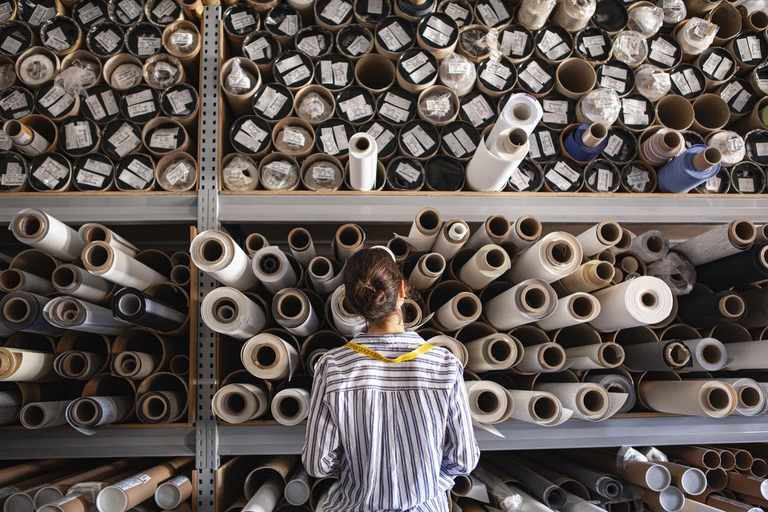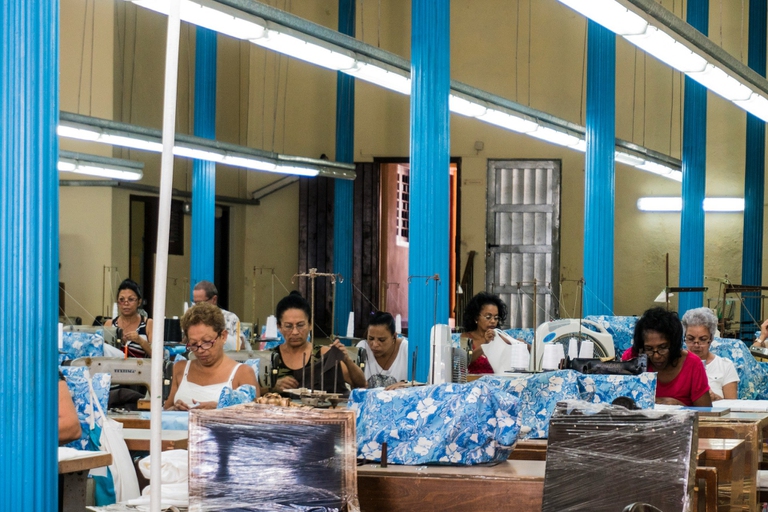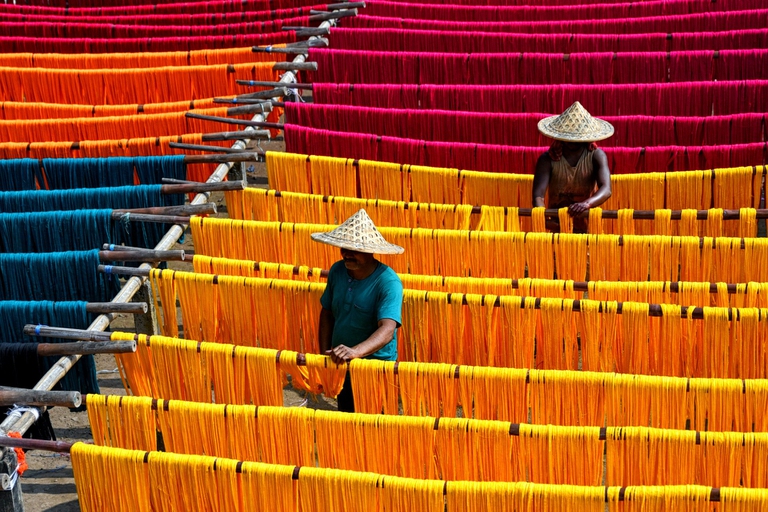https://www.lifegate.it/etichette-vestiti-come-leggere-certificazioni
- |
- There are many textile certifications and concern different aspects, from production to environmental respect up to that of the workers and the protection of the animals involved.
- Certifications can be achieved based on a voluntary or mandatory process:in any case they say a lot about the brand and its philosophy.
- Here is a list of the main textile certifications to know.
Endless acronyms and codes, associations and certifications, but which are the truly reliable ones and, above all, the ones you need to know to make responsible purchasing choices?In recent times, thefashion industry has been at the center of numerous controversies also regarding the reliability of the certifications.An investigation by the British NGO Earthsight, published in the section Fashion Crimes, has in fact revealed that fast fashion giants such as H&M And Zadar they use large quantities of cotton that has the brand of Better Cotton, which should guarantee ethics and sustainability, but has been cultivated in territories illegally deforested in Brazil.
The charges include land grabbing, human rights abuses and corruption.This cotton is grown by two of the largest Brazilian agro-industries, SLC Agrícola and the Horita Group, in the state of Western Bahia, a biodiversity-rich area called Cerrado, devastated by large-scale agriculture.In light of these revelations, it is essential to know the different certifications that guarantee ethics and safety sustainability of textile products.Here is an overview of the most important ones.Understanding these certifications is essential to doing conscious choices and sustainable in the world of fashion.Knowing the acronyms and their meanings helps ensure that the textile products purchased comply with ethical and ecological criteria, contributing to a more sustainable future for everyone.

Environmental, social, recycling or animal-friendly certifications
One of the main categories concerns the environment.These certifications ensure that production processes minimize harmful impacts on the environment and the consumption of natural resources.An example is branding OEKO-TEX® Standard 100, which verifies theabsence of harmful substances in textile products, ensuring safety for consumers and environmental sustainability.Others are focused on ethical and social aspects, ensuring respect for workers' rights, working conditions, human rights and corporate transparency.A significant example is the standard SA8000, which focuses on improving working conditions and ensuring that companies operate fairly and respectfully towards their employees.
An area of growing importance is that of animal rights certifications, which set rules for the protection of animals and encourage brands to renounce the use of materials of animal origin.The Responsible Wool Standard (RWS), for example, ensures that the wool comes from farms that respect the animal welfare, promoting sustainable and ethical agricultural practices.
The certifications relating to biological they guarantee that the natural textile fibers come from organic cultivation and are traceable throughout the entire production chain.The Global Organic Textile Standard (GOTS) is one of the most recognized standards in this field, certifying that the production process respects rigorous environmental and social criteria.
Finally, the certifications relating to recycling certify the use of recycled materials in textile products.Innovative companies are developing yarns derived from fabric remnants, recycled plastic and other waste.The Global Recycled Standard (GRS) certifies the entire supply chain of recycled materials, ensuring transparency and sustainability.
The ISO system represents one of the best known and most widespread regulatory systems globally.ISO standards establish rigorous production and organizational criteria, guaranteeing quality and safety along the entire production chain, representing a point of reference for companies in the sector.Navigating the world of textile certifications may seem complex, but understanding the different categories and their meanings is essential to making informed choices and having confidence in the products you purchase.
Certifications relating to production processes
-
ISO 14001 certification
The certification ISO 14001 it is issued to organizations that demonstrate that they have implemented and maintained an environmental management system compliant with ISO standards.This certificate certifies that the company is able to identify, manage, monitor, control and improve the environmental impacts of its processes, products and services as an integral part of its business management. -
Life Cycle Assessment (LCA) certification
The certification Life Cycle Assessment (LCA) is an analytical and systematic methodology that evaluates the sustainability of a product or service throughout its life cycle, considering environmental, social and economic aspects.LCA analyzes all phases of a product's life cycle, from the production of raw materials to distribution, use, recycling and final disposal. -
PEF (Product Environmental Footprint) certification
The certification PEF evaluates the environmental sustainability of a product throughout its life cycle, from production to the end of its use.Developed by the European Commission, it involves an evaluation by an independent third-party organization of the environmental performance of products on a series of indicators.

Environmental certifications
-
Confidence in Textiles (OEKO-TEX®)
Confidence in Textiles, also known as OEKO-TEX®, is a registered trademark that guarantees that textile products are tested for over 300 harmful substances.Certification is voluntary and requires numerous tests conducted by independent institutes.OEKO-TEX® ensures that the products are safe for human health. -
GOTS – Global Organic Textile Standard
The Global Organic Textile Standard (GOTS) is the main world standard for the processing of fabrics produced with organic natural fibres.GOTS guarantees ecological and social criteria along the entire supply chain, from the field to the final product, certifying the use of organic fibers and the sustainability of the production process. -
GRS – Global Recycled Standard
The Global Recycled Standard (GRS) allows companies to track the proportion of recycled material in a product, ensuring transparency and traceability throughout the production chain.Includes guidelines for environmental management and social responsibility. -
Recycled Wool
It is a certification issued by The Woolmark Company, the consortium of Australian wool producers, which guarantees that products contain at least 20% recycled wool, while meeting Woolmark's rigorous quality standards. -
OCS – Organic Content Standard
L'Organic Content Standard verifies the presence and quantity of biological material in the final products, tracing the flow of raw materials along the entire production chain. -
Cradle to Cradle
Cradle to Cardle (C2C) is a circular approach to recycling management, where products are chemically harmless and completely recyclable, eliminating the concept of waste. -
Made in Green by OEKO-TEX
Made in Green by OEKO-TEX certification ensures a traceable and sustainable production chain, using a QR code system to verify that the product complies with both Standard 100 and OEKO-TEX STeP standards. -
Eco Passport by OEKO-TEX
ECO PASSPORT is a certification system for chemicals, dyes and auxiliaries used in the textile and leather industry.It guarantees that the products are not harmful to human health. -
FSC – Forest Stewardship Council and PEFC
Forest Stewardship Council And PEFC they ensure that wood products come from sustainably managed forests, benefiting both biodiversity and local communities. -
EU Ecolabel
L'EU Ecolabel is awarded to products that have a lower environmental impact than comparable products, allowing consumers to identify greener and healthier options.

Certification relating to respect for workers
-
Fairtrade Textile Production
The standard Fairtrade Textile Production ensures sustainability and transparency along the entire value chain, including social, ecological and economic criteria for the sustainable development of producers in developing and emerging countries. -
Fair Wear
Certified brands Fair Wear improve working conditions in the garment industry through performance checks, factory audits and training sessions for workers. -
Naturtextil IVN Best and Naturleder IVN
IVN Best And Naturleder IVN they represent the highest standards of ecological and socially responsible production.Naturtextil IVN Best focuses on fabrics, while Naturleder IVN evaluates all stages of leather production.Both guarantee the absence of child labor, discrimination and inhuman treatment, as well as safe working conditions and decent wages. -
SA8000 by SAI
The certification system SA8000 of Social Accountability International (SAI) provides a framework for organizations to ensure fair and decent working conditions, adhering to the highest social standards. -
Cotton Made in Africa
This program improves the living conditions of small-scale cotton farmers and their families in sub-Saharan Africa, promoting sustainable cotton and increasing demand for African cotton in international markets.
Animal welfare certifications
-
RDS – Responsible Down Standard and RWS – Responsible Wool Standard
Responsible Down Standard And Responsible Wool Standard guarantee animal welfare practices in the down and wool production sectors, respectively, ensuring that all stages of production respect high ethical criteria.
